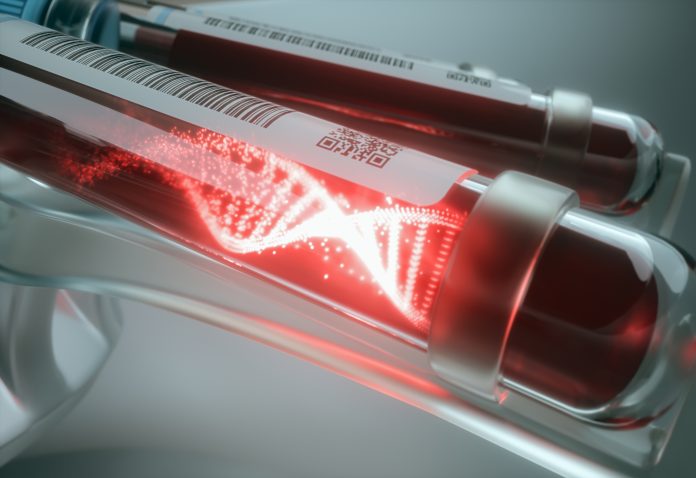
An international consortium of researchers, led by City of Hope and TGen, has been awarded a five-year, $4.5 million grant to validate a liquid biopsy for the early detection of pancreatic ductal adenocarcinoma (PDAC).
The National Institutes of Health’s National Cancer Institute (NCI) awarded the grant to co-principal investigators Ajay Goel, PhD, chair of the Department of Molecular Diagnostics and Experimental Therapeutics at Beckman Research Institute of City of Hope, and Daniel D. Von Hoff, MD, distinguished professor in the Molecular Medicine Division at Translational Genomics Research Institute (TGen), part of City of Hope.
Goel told Inside Precision Medicine that the grant will be used to continue five years of work that had already been funded by the NCI and led to the development of a highly specific blood-based diagnostic test that looks for tumor exosomal microRNAs.
He explained that exosomes “are tiny vesicles, which are an extension of tumor cells” and therefore contain tumor-specific DNA, RNA, and proteins.
The goal of the initial grant “was to use a combination of total microRNAs which are floating in blood because they’re very sensitive and combine them with our microRNAs which are inside the exosome to achieve the highest possible sensitivity and specificity, and that’s exactly what we showed during the past five years,” said Goel.
Indeed, Goel and team recently reported in Gastroenterology that their liquid biopsy could detect early stage PDAC with around 80% accuracy. When the test was combined with cancer antigen 19-9 levels the accuracy increased to 94%, though only a limited number of patients were tested.
The current funding will be used to validate the accuracy of test in a much larger cohort of patients with pancreatic cancer. The researchers will also be testing blood samples from people with a family history of PDAC and biobank participants with no history of cancer to see how early the cancer can be detected.
This is important because according to the American Society of Clinical Oncology, pancreatic cancer is the fourth leading cause of cancer-related deaths among adults in the United States. At the time of diagnosis, approximately 70% of patients will have stage 3 or stage 4 disease and only 6% will survive for 5 years or longer. One of the main reasons for the high mortality rate is the lack of reliable methods for early diagnosis.
“So, we need [a test] in the liquid biopsy format, which we can begin to use firstly in high-risk individuals where the disease runs in families or those with new onset diabetes, who are also at high risk for subsequently developing pancreatic cancer,” said Goel. “We can’t put people through invasive procedures when we don’t even know if they’re diseased or not.”
The patients with early-stage PDAC will be enrolled at each of the 10 sites that make up the consortium, namely City of Hope and Hoag Memorial Hospital in California, TGen and HonorHealth in Arizona, Medical College of Wisconsin, Ochsner Clinic Foundation in Louisiana, Howard University Hospital in Washington, D.C., Piedmont Healthcare in Georgia, Nagoya University in Japan, and Samsung Medical Center in Korea.
The inclusion of Piedmont Health and Howard University, which predominantly see people of African American heritage who are disproportionately affected with this disease, as well as the sites in Japan and Korea is “very important” noted Goel. It will allow the researchers to focus on ethnic/racial disparities in pancreatic cancer and determine whether the test works as well in people of these ethnic/racial heritages.
Goel believes that if the validation study proves the accuracy of the test, it could be a “game changer” because if you can find the disease earlier you can “save a lot of lives by treating the patients much more effectively.”
The ultimate aim of the research is to bring the test to the clinic, said Goel, noting that they are already looking at potential licensing options. “The goal would be to eventually receive blessing from the FDA to begin to use this very relatively inexpensive, quick, easy, non-invasive test for early detection of pancreatic cancer,” he remarked.
Goel also pointed out that the liquid biopsy “is a perfect example of precision medicine approach” because it allows clinicians to select individuals who are at risk for getting PDAC, but who do not present symptoms, for further testing. “The disease can’t be detected by MRIs and CT scans, but we can find it using this blood test. And once we do, then we can offer the next interventional treatment.”











